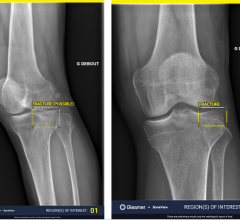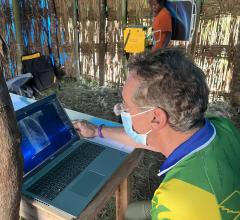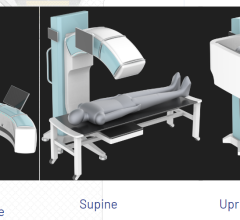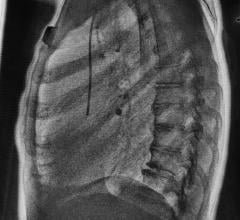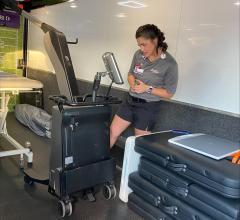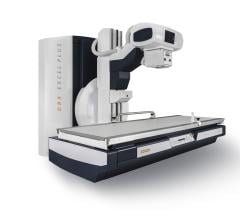BLOG: How Data Analytics is Transforming Patient Care

From sharing patient information between physicians to improving the speed and efficacy of treatment by making faster and more accurate diagnoses, the use of data and analytics is playing a critical role in healthcare. At the same time, as data gets richer and used in real-time, it is enabling measurable improvement to radiology workflow as well as staff education. Data collection is quickly becoming a vital tool for delivering high-quality patient care.
Gundersen Health System, a leading provider of primary and specialized care in western Wisconsin, southeastern Minnesota, and northeast Iowa, encompassing seven hospitals and 33 clinics, is leveraging data analytics to make smarter decisions, improving departmental efficiencies and patient care.
In 2017, Gundersen began collecting data from each radiology unit to streamline processes such as manual papers summaries, evaluating repeat exam rates, image quality and imaging results. As part of this process, the master data is loaded into a sophisticated quality program.
Gundersen built this master report with the help of the advanced monitoring and analytics tool AeroRemote Insights, a cloud-based subscription service available with Konica Minolta Digital Radiography Systems. The platform collects and aggregates valuable data daily such as exam volume, rejected image reasons, and exposure levels for exams and provides technologists with all the insights they need to improve staff efficiency and deliver a better experience for patients.
Data Analytics Matter
According to Susan Einerwold, RTR and clinical manager of diagnostic imaging for Gundersen Health System, “Data is very important to Gundersen. Consistent quality images enable radiologists to be more efficient and provide the best radiology report possible.”
Because the data is automatically integrated into easy-to-interpret dashboards, it can be used to track departmental productivity to gain a better understanding of how, when and by whom the systems are being used. In addition, data can be used to evaluate user performance by assessing user accuracy, productivity, and exam dose patterns to help evaluate performance and identify training opportunities.
Other benefits of the system include:
- Dose Metrics – Monitors exposure indicators by user, system or exam view. Helps to identify where techniques can be adjusted to optimize dose.
- System Health – Provides instant access to service contract status, system events and AeroDR panel calibration schedules. Minimizes downtime by addressing issues before they become problems.
- Aggregate Comparisons - Compares a facility’s performance to the AeroRemote Insights community average, including reject rates.
- Panel Handling Tracking - Assesses AeroDR panel handling by time of day, location, and user. Helps to identify where to take action to reduce the financial risk of accidental damage and downtime.
“As a medical center with regional outreach sites, 18 of which have imaging, we decided to go with Konica Minolta for the regional sites because the AeroRemote Insights delivers insights in intuitive visualizations and dashboards,” Einerwold explained. “We identified the information we wanted, and Konica Minolta built a custom master data report. The data fields were standardized for every unit that is in use, plus any newly installed ones, so that when we load it into our system, it automatically integrates very easily, and it is standardized.”
According to Einerwold, the report gives an individual dashboard for every technologist. Gundersen also has superusers, a quality team that can look at the data to identify improvement opportunities. “We also have a sign off for our medical physicists in the Gundersen report and we get a dashboard of all the sites, what their percentages are, and their numbers. Our physicists can go in, review the data and sign off on it, so that we meet regulatory requirements,” she added.
“The primary reason we collect data and have this very robust quality program is high-quality patient care. It helps us reduce repeat exams and reduce the dose to the patient by decreasing the number of retakes. It also helps us grow our staff because we use the information for education and improvement projects,” Einerwold said.
A Holistic Approach to Service
While data analytics is invaluable, no solution would be fully effective without understanding the exact needs and goals of the health system and ensuring that they receive the support necessary to maximize the value of their solutions. With a 24/7 customer care center, expert professional services and value-add analytic dashboards, Konica Minolta is committed to transforming the customer experience through innovative service solutions.
“It is very important that our vendors work with us to meet our needs. Konica Minolta has been very proactive in learning what we need as an organization and what our goals are especially related to our specific quality program. There was a lot of collaboration with the engineers to determine what we wanted as far as quality data and to make the necessary adjustments as needed,” Einerwold said.
“We take patient care, technical quality and radiation safety very seriously. That is why it is great to work with our vendors at Konica Minolta to achieve our goals and what is a very, very high-quality program,” Einerwold added.
Editor’s note: This blog is the first in a three-part series about innovative advancements in radiology. The first blog, Assessing Anatomy in Motion with Dynamic Digital Radiography, can be found here.



 November 26, 2025
November 26, 2025 

